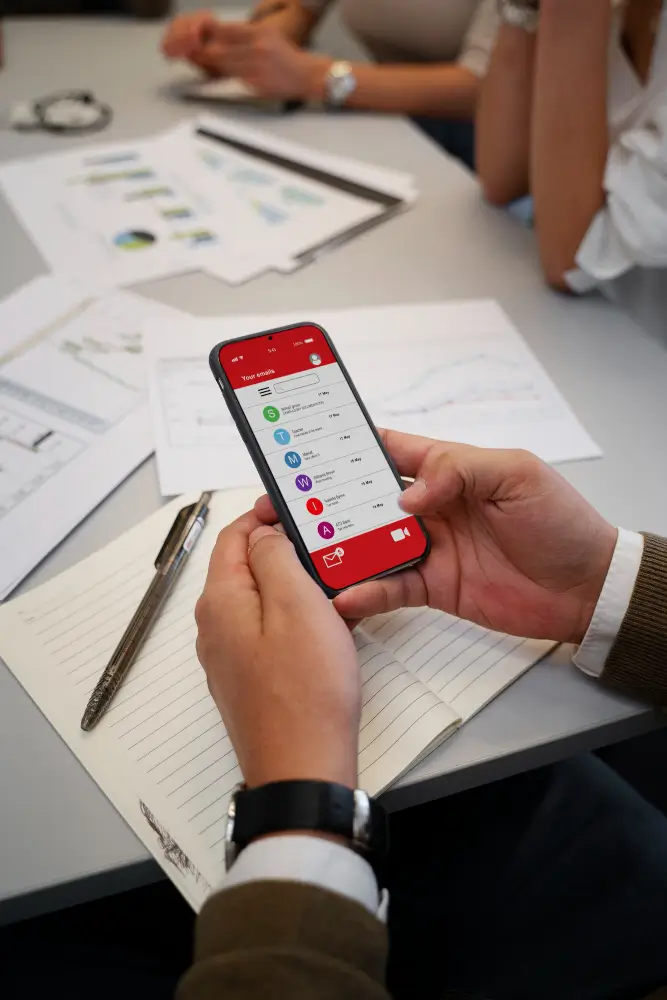These days, one of the most important tools for companies looking to connect with their customer base is mobile app development. Businesses have to understand it’s full potential if they hope to profit from it.
We will go over each of the key steps companies must take in order to make accurate choices. To help you get the entire idea of mobile app development services, we will go over the entire process, the importance of these services, and their future. We will also include some basic frequently asked questions for your understanding.
The Importance of Mobile Applications
The entire process of creating software applications for mobile devices is included in mobile app development services.
Businesses can connect with their target audience straight from their devices by using mobile applications. Customers can connect with their brands, make purchases, and simply obtain information because of these apps. Apps can provide personalized experiences, helping companies respond to the unique requirements and habits of their users.
Having a stand-alone mobile app is important for maintaining relevance and promoting customer engagement as consumers depend more and more on their smartphones to do everyday tasks.
Breakdown of Mobile App Development Services
Android Development:
Android is one of the top mobile operating systems and requires technical skills in Android development. This process develops applications optimized for Android by using languages such as Java and Kotlin. The people who work in this area ensure that applications are visually appealing, functioning, and user-friendly.
The developer has to focus on multiple screen sizes and resolutions considering the popularity of a wide variety of devices running on Android. It also affects compatibility, which is a core focus of the development process.
iOS Development
With millions of iOS devices circulating, developing iOS solutions becomes a business necessity for businesses targeting the Apple user market. iOS developers use languages such as Swift and Objective-C and follow the rules set out by Apple. Such specialization ensures that apps run perfectly across different products from Apple, with a very high quality of user experience. iOS applications are also screened through Apple’s App Store review process, further ensuring that end-users get quality applications.

Hybrid App Development:
Hybrid app development combines the best of both worlds, bringing elements from native apps and web applications together. Apps can be written using web technologies like HTML, CSS, and JavaScript and then wrapped in a native shell to be functional on different platforms. This allows for quicker release cycles and lower costs while reaching a broader audience through the use of frameworks like Flutter or React Native. This flexibility makes hybrid apps an attractive option for businesses that want to maximize their investment.
Read More:
The Mobile App Development Process
Understanding the process can be helpful to firms in negotiating through the complexity of an app creation process. Here are the significant phases involved:
Planning and Research
This is the foundational stage: defining the app’s purpose, understanding the target market, and analyzing competitors. Mobile app developers work with stakeholders and derive necessary features and functionalities that should be available in the app. This stage involves outlining the objectives of the app, including market research to analyze user expectations, which are essential for the app’s success.
Designing the User Experience
Designing is what makes the success of the application. Mobile application development designers create wireframes and prototypes to visualize the app’s layout and navigation. Good design goes for usability improvement and giving a good experience to the user. Quality user experience (UX) design is imperative for keeping the users and further improving customer satisfaction.
Development Phase
This is the stage where actual coding takes place. Depending on whether the app is built for Android, iOS, or as a hybrid, developers use different technologies and tools. They also set up backend services that manage data and user interactions effectively. This phase requires a strong technical foundation to make sure that the app is strong and scalable for future demands.
Testing and Quality Assurance
Testing ensures the app is free of bugs and works properly across devices. This stage is essential for identifying compatibility issues and performance glitches. Comprehensive testing is vital for delivering a smooth and enjoyable user experience upon launch. It may include functionality testing, usability testing, security testing, and performance testing to ensure the app meets the required standards.
Deployment
After thorough testing, the app is prepared for launch. This involves submitting it to app stores and implementing marketing strategies to attract users and generate downloads. The deployment process also includes monitoring initial user feedback and performance metrics to identify any issues that may arise post-launch.
Ongoing Maintenance and Updates
After the app is launched, maintenance is important to sustain it. This includes bug fixes, feature updates, and performance optimization based on user feedback and technological advancements. Updates protect the app from new security threats while also providing features that keep users interested.
The Importance of Skilled Mobile App Developers
Mobile app developers are important in the app development landscape. They have the technological know-how to turn concepts into useful applications. Because they are knowledgeable about the newest trends and technology, the top developers can provide creative solutions that will improve the functionality of your app. The app will satisfy customer expectations and follow rules and regulations because of their understanding of industry standards and best practices.
The choice of a competent development team may have the biggest impact on the project’s outcome. They help companies at every step of the app development process by offering advice and insights to help the customer realize their goals. A strong team can also provide ongoing support and maintenance, ensuring long-term app performance and user satisfaction.
The Future of Mobile App Development
The field of developing mobile apps is going through significant transformation in the future. The future of mobile applications will be shaped by the trends of AI, AR, and IoT as technology develops. AI will improve decision-making and provide tailored experiences. AR will improve user engagement by providing immersive experiences.
In addition, as 5G technology becomes more widely used, apps will load faster and have fewer delays, which will enable developers to improve end-user experiences. In this competitive app market, businesses that recognize these trends early and adjust their positioning are likely to thrive.
Conclusion
The demand for mobile apps is increasing, and investing in mobile app development services is becoming important for businesses. There are many choices available to corporate businesses, ranging from hybrid app development solutions to iOS and Android development solutions. Working with an experienced developer of mobile apps and considering the use of tailored mobile application development can facilitate creating something very unique and suited specifically to one’s needs.
If you are seriously considering a job in mobile app development, take some time and weigh your options, outline your objectives, and then choose an engaged team to implement your idea into a viable app. This is because the business, with a much better understanding of the services provided in mobile app development and the effective engagement of qualified professionals, can produce an impact of a mobile solution that appropriately meets strategic goals.
Are you ready to dive into making an application? The right approach can turn your mobile application into a silver lining for your business.
FAQs
Q1. Define mobile application development?
In simple words, mobile app development is a process of designing software applications for mobile devices like smartphones and tablets.
Q2. What should be kept in mind when developing a mobile app?
You should keep in mind your target audience, desired functionalities, budget, and the chosen platform, whether Android, iOS, or both.
Q3. How long does it take to develop a mobile app?
Development timelines can vary greatly depending on the app’s complexity and specifications. Simple apps may take a few months, while complex applications can take six months to over a year.
Q4. What costs can I expect with mobile app development?
Costs can fluctuate based on various factors, including app complexity and design requirements.
Q5. Can I update my app after it’s been launched?
Absolutely! Regular updates are important for maintaining app performance, improving features, and addressing any issues based on user feedback.












